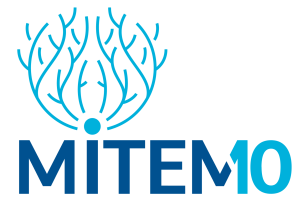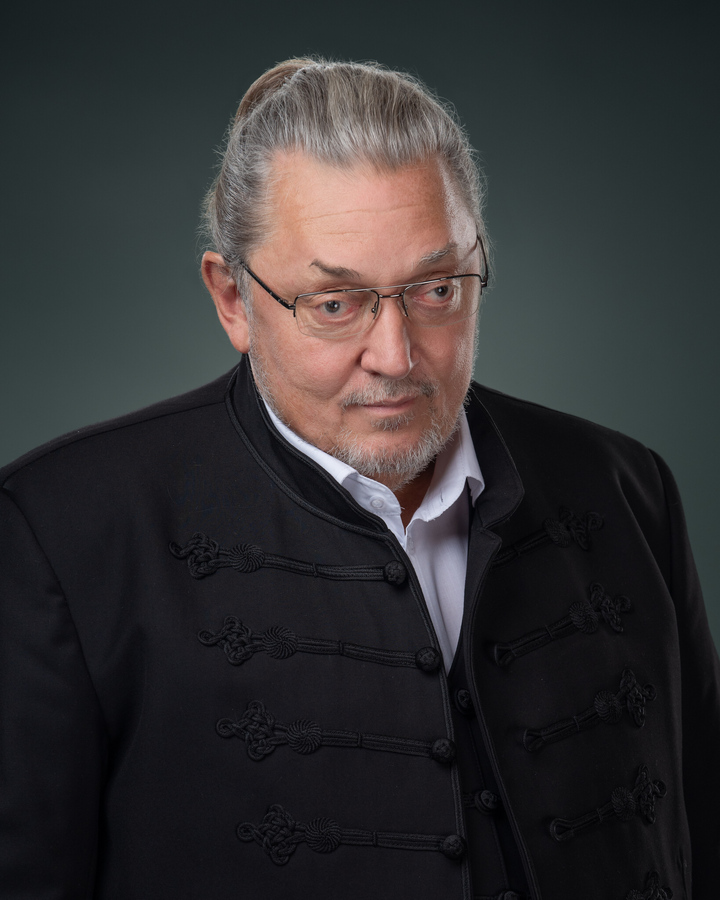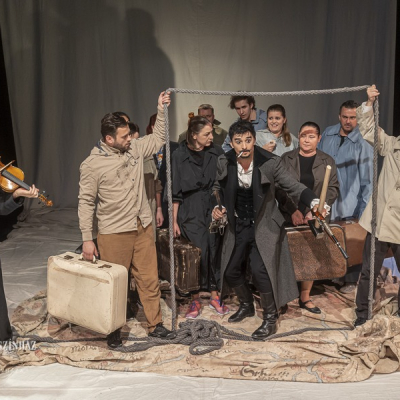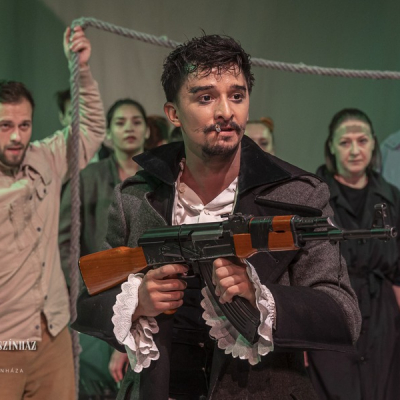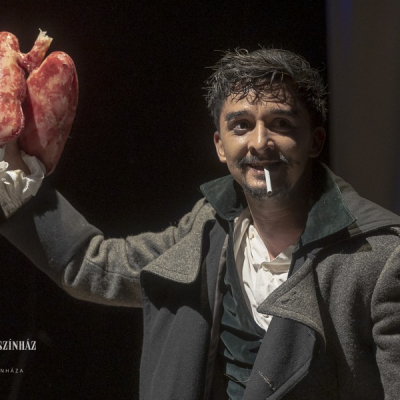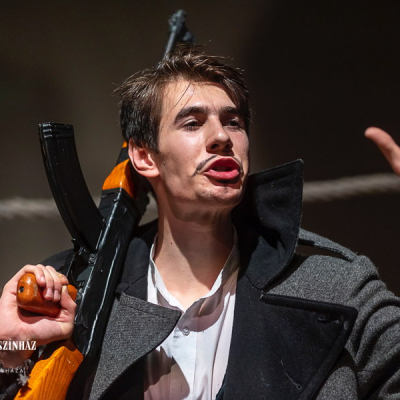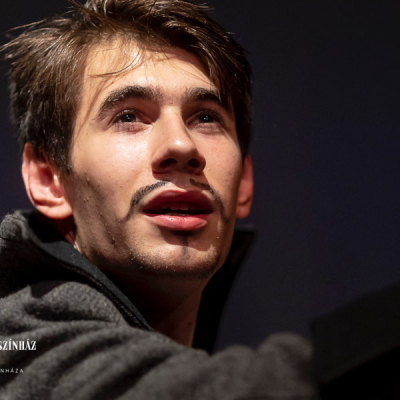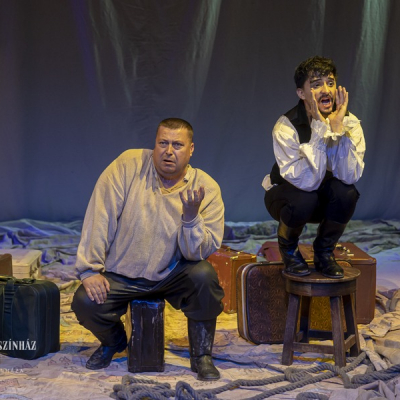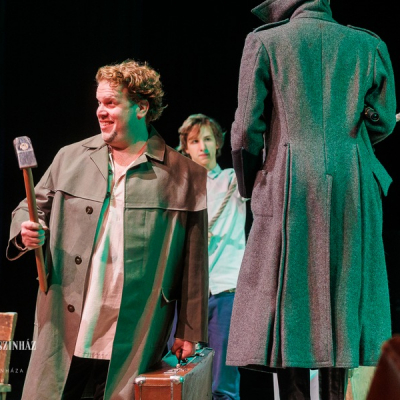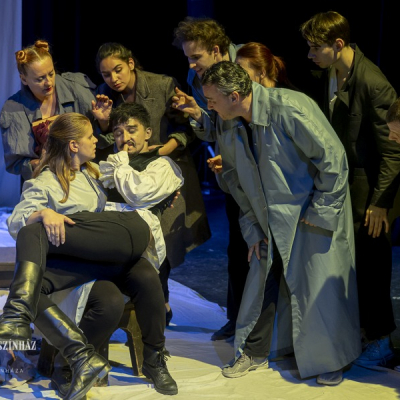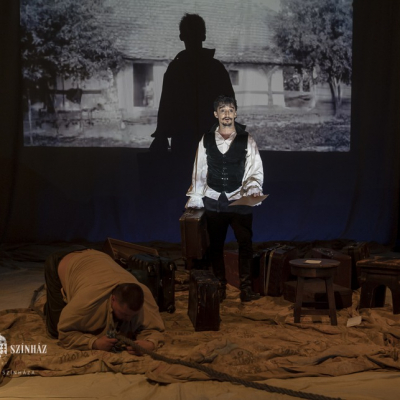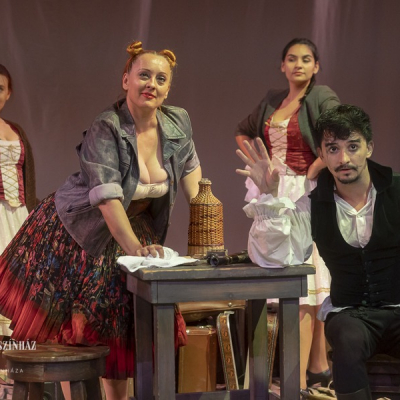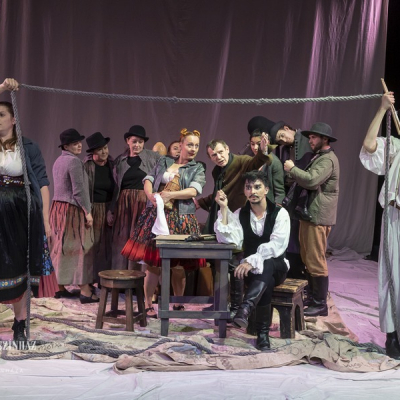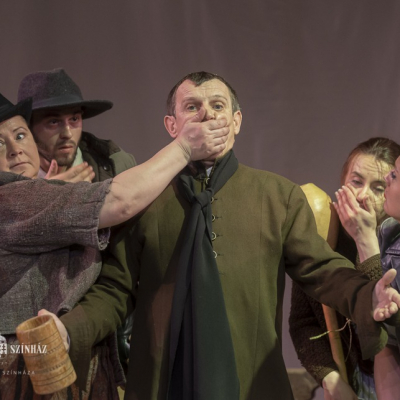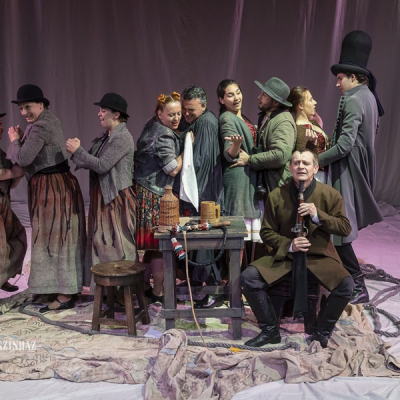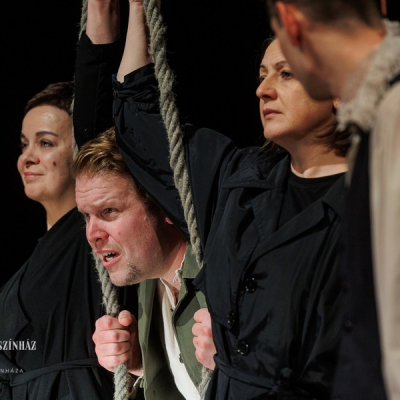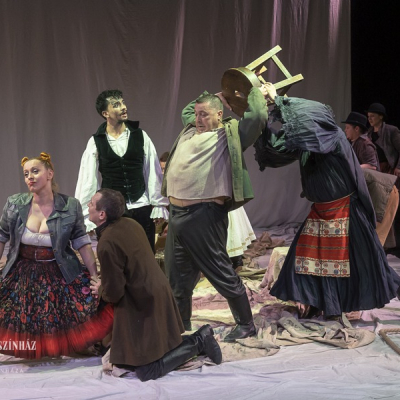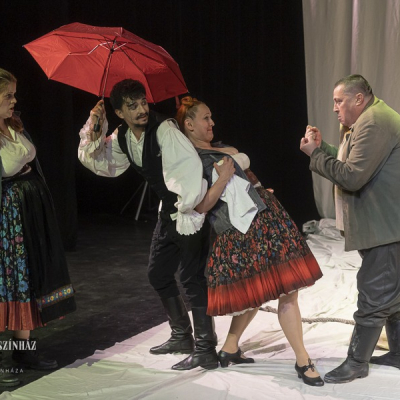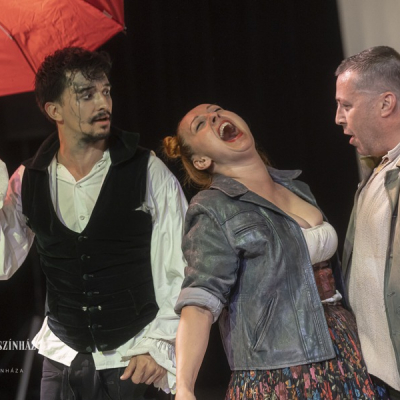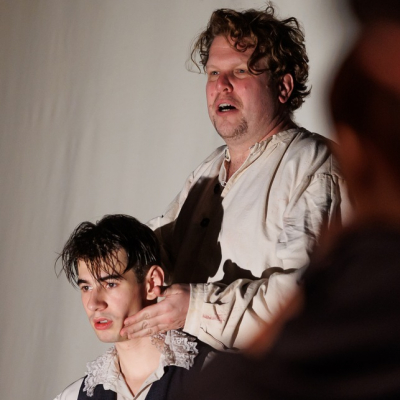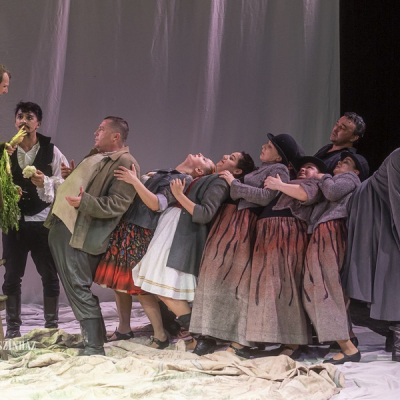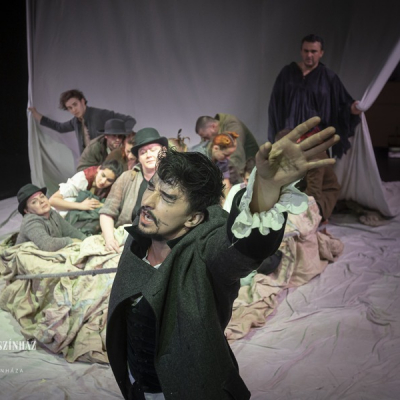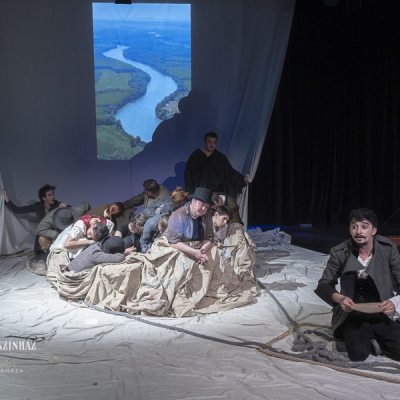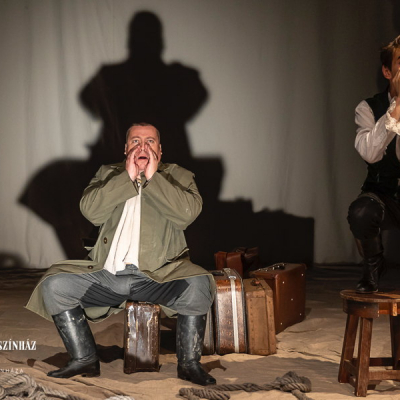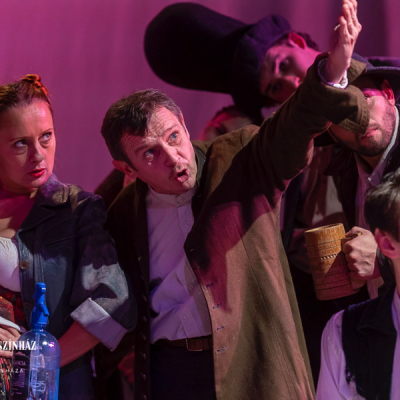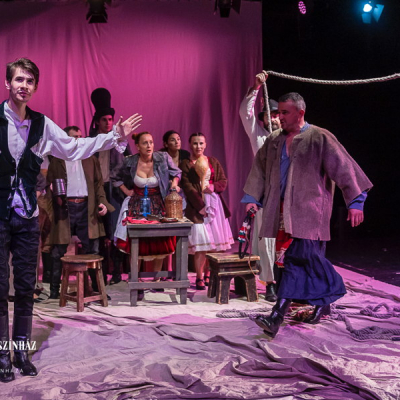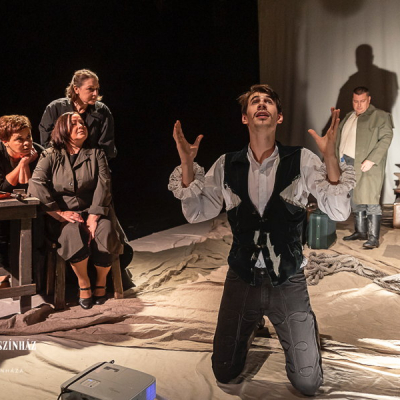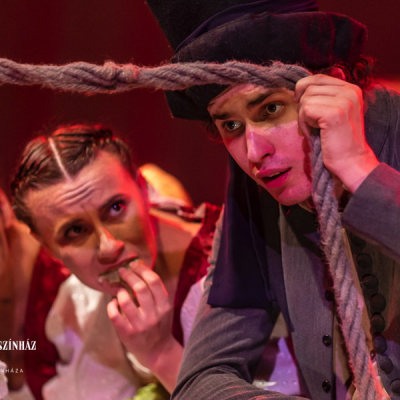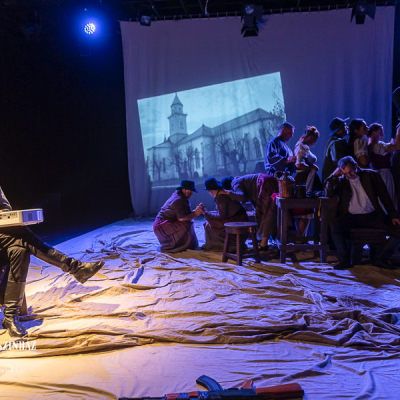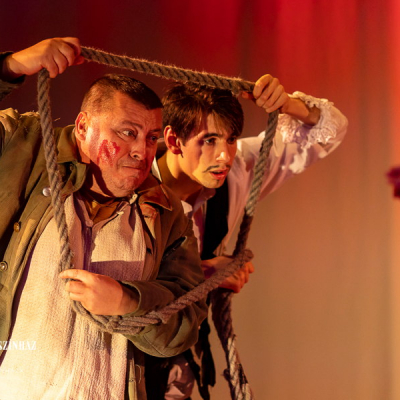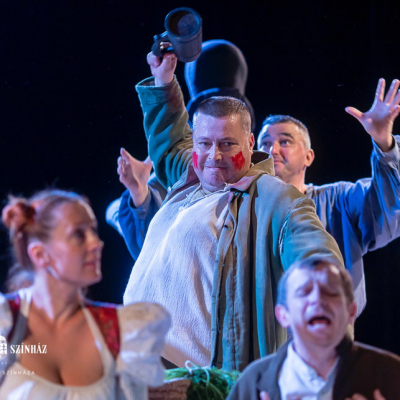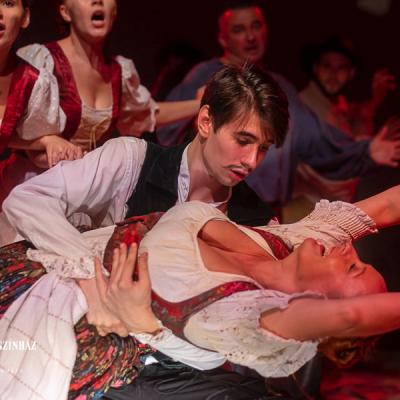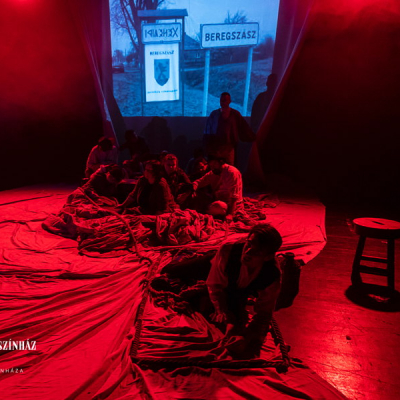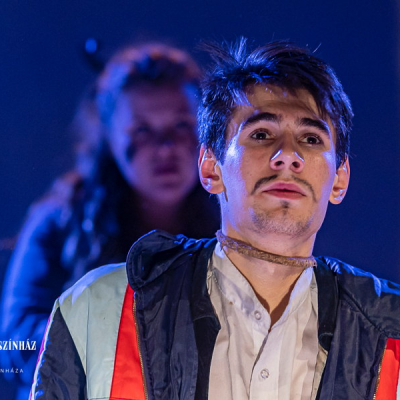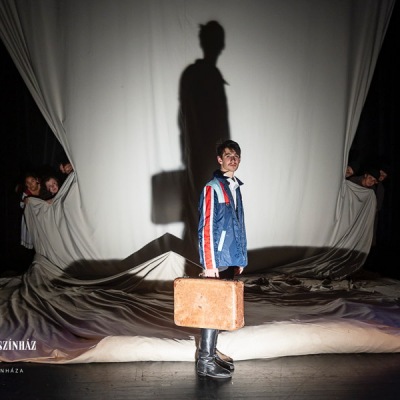The Hammer of the Village
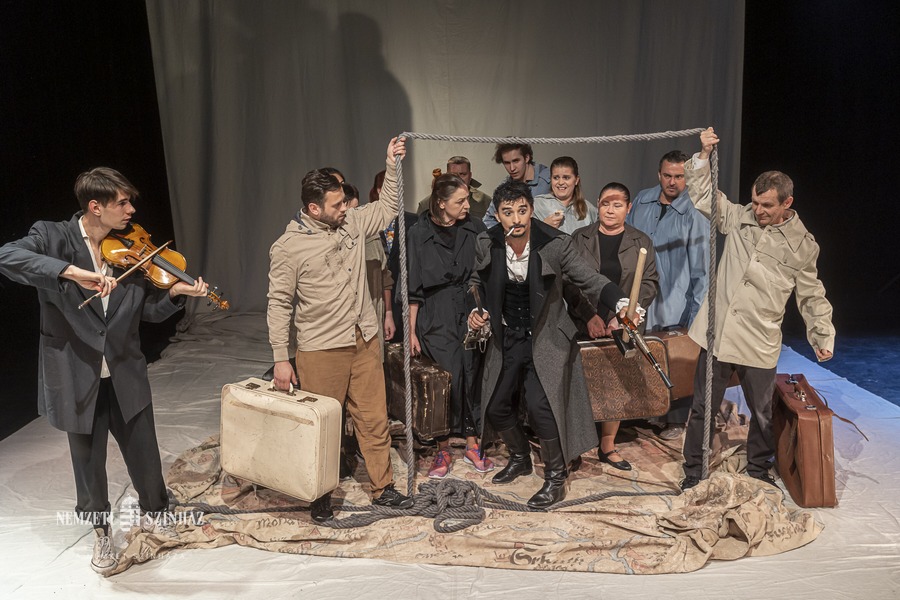
Ukraine • Transcarpathian Regional Hungarian Drama Theatre, Berehove
Director: Attila Vidnyánszky
Performed in Hungarian
1 hours 40 minutes, without breaks.
Upon seeing thy father's ghost
Compared to how scared
The local soft-hearted cantor was
at the sight of his wife?"
Published in October 1844, The Hammer of the Village was Sándor Petőfi's first book. Versek (Poems), which earned him fame, was published only a few weeks later; and it was then that he began writing John the Valiant, which would make him one of our greatest poets. His honorarium was 40 pengo forints, which the poet promptly dispatched to his parents to help them in their dire financial circumstances. The work, which Petőfi called a heroic poem, was not a success. Years later, the publisher was still stuck with unsold copies, and it was omitted from the Complete Poems in 1847. What may have been the reason? Perhaps, it was that this comic poem set out not only to parody the genre, but also to mock the lofty and manneristic stage-nationalist poetry of the era, which may have seemed too cheeky to the contemporaries of this young man who had just been promoted to assistant editor. It became all the more successful later on, as the public came to accept its humour, irony, grotesquely bloated imagery and the mock-pathetic tone of its brilliant hexameters. The character names make the reader/spectator smile right away: Erzsók (55), a buxom woman, Bighead the blacksmith, also known to his fanciful and poetic folks as the Hammer of the Village; Bellfry the cunning clergyman, Bagaria, a friend of peace, Palkó Rubstraw the brave and jolly groom of the reverend's two bay colts, the tender-hearted cantor and his 'Amazon' wife Márta.
- Beside the poem's charm and humour, this production is also about the Berehove company, i.e. that theatre is a means of cultural survival. We do not rearrange Petőfi's poem, but we start from the premise that the members of this company are sitting here with their suitcases because of the war and cannot be at home. Petőfi, who appears on stage, quotes from the Transcarpathian passages of his Travel Letters and we think of home... This is a playful and free performance, our contribution to the Petőfi memorial year celebrating the 200th anniversary of the poet's birth.
Attila Ferenci
Natália Gál
Adrienn Cséke
Dóra Mónus
István Sotér
Szilárd Szilvási
Tamás Jakab
Tamás Olt m.v.
Bence Bognár
Júlia Fornosi D.
Anita Polyák
m.v. /
Balázs Rajkó
Attila Vidnyánszky Jr.
Attila Vidnyánszky
